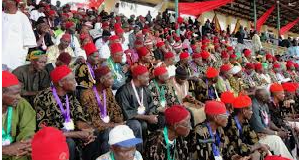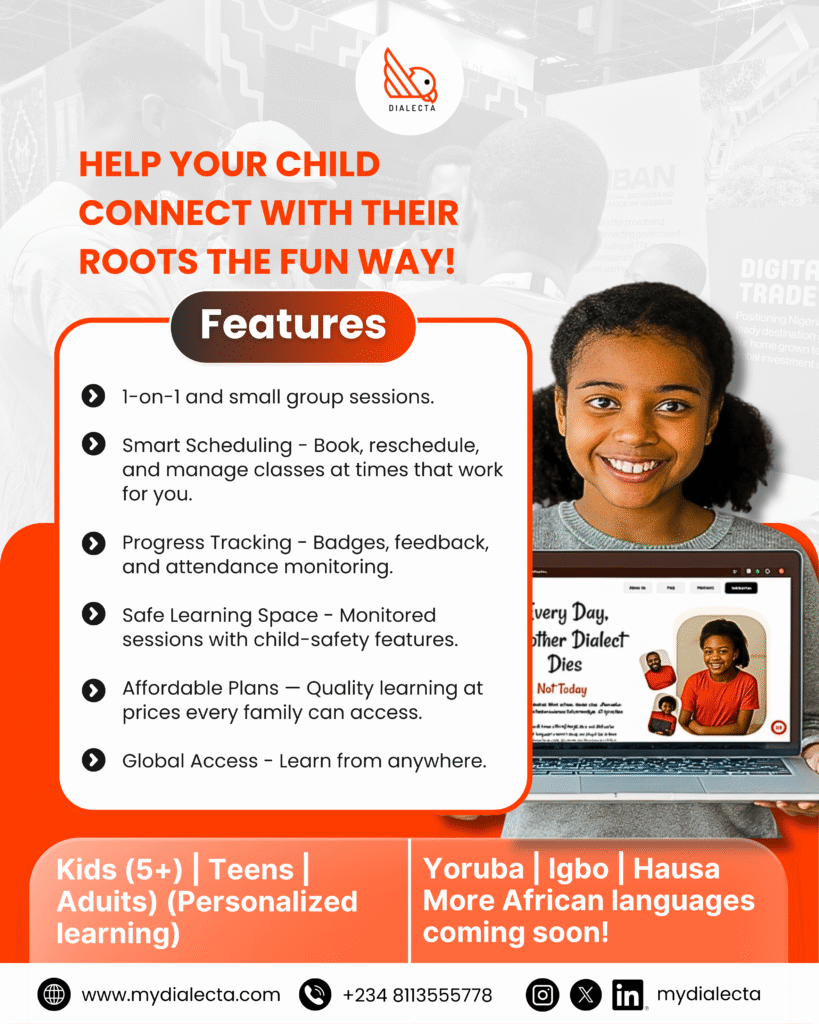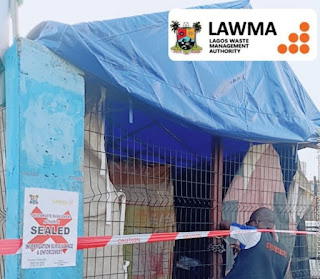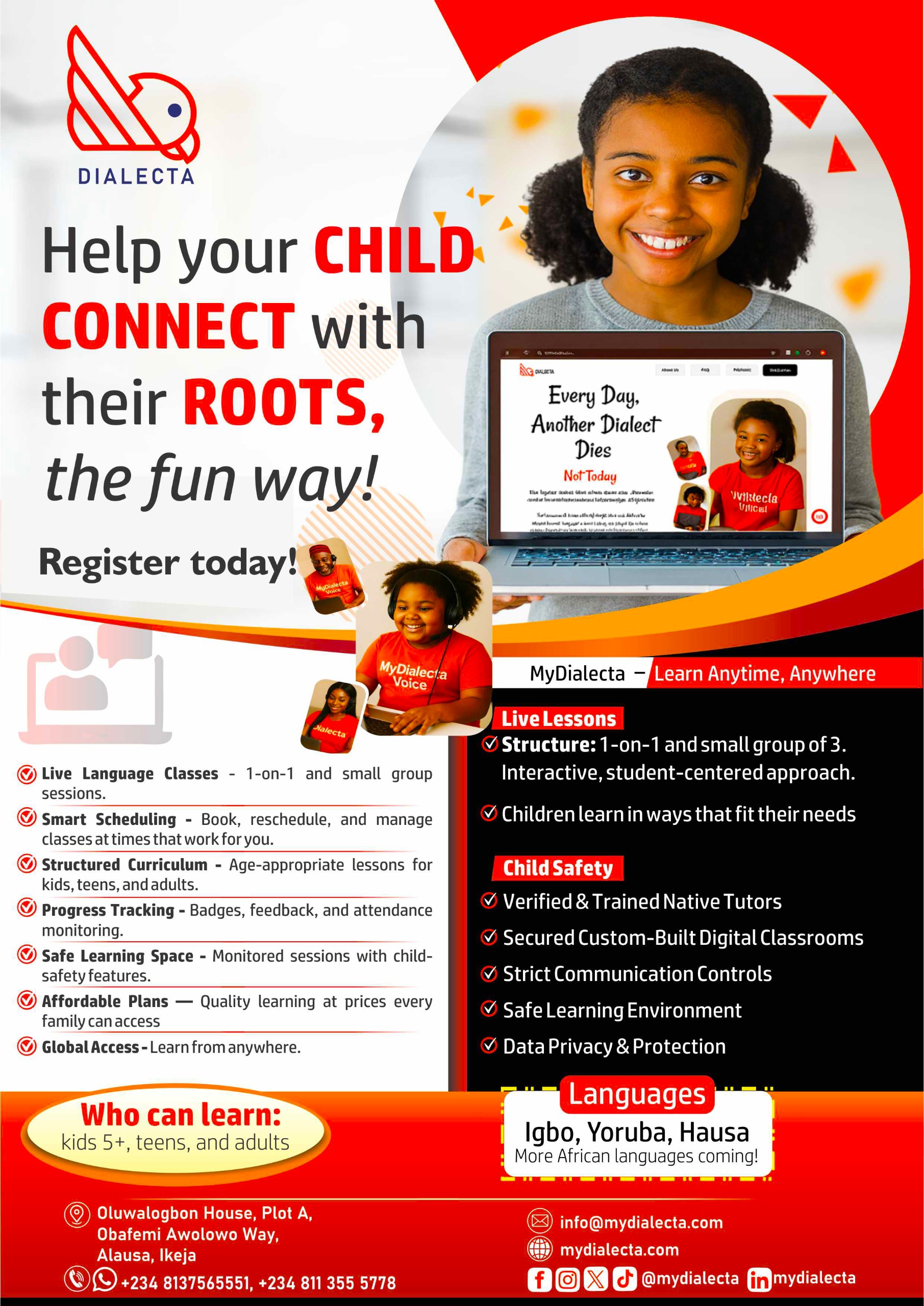
In today’s fast-changing world, where global influence often overshadows local culture, a bold Nigerian platform, MyDialecta.com, is helping families reconnect to their heritage by teaching children to speak their indigenous languages with pride and confidence.
Developed by passionate language and culture enthusiasts, MyDialecta.com offers fun, interactive, and affordable online lessons in Yoruba, Igbo, and Hausa, designed to make learning both enjoyable and meaningful for children and adults alike.
” Language is more than words; it is identity, pride, and connection,” says the MyDialecta team. “When children understand their native tongue, they connect deeply to their culture, values, and history and that gives them a stronger sense of who they are.”
Through storytelling, songs, games, and cultural expressions, the platform brings indigenous learning to life. Children not only learn to speak fluently, but they also discover the proverbs, values, and traditions that have shaped generations of Nigerians.
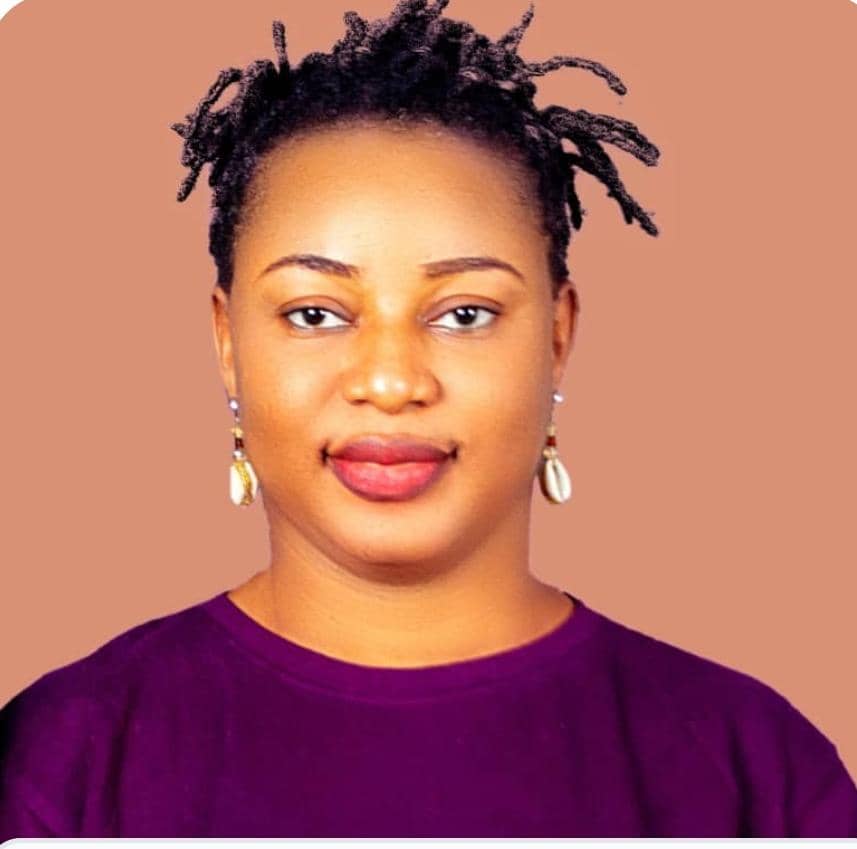
In an era where many Nigerian children are growing up unable to communicate in their mother tongue, MyDialecta.com is bridging the gap — one learner at a time. Parents are encouraged to take advantage of the platform’s flexible and engaging online programs that make language learning a joyful family experience.
Whether your child lives in Lagos, London, or Los Angeles, MyDialecta.com ensures they stay connected to their roots. The classes are designed to fit modern family schedules and are facilitated by experienced native-speaking tutors who bring warmth, patience, and creativity to every session.
Why it matters:
• Builds cultural pride and self-identity
• Strengthens family and intergenerational bonds
• Preserves Nigerian heritage for the future
• Provides fun, interactive, and affordable learning experiences
Parents looking to nurture a stronger sense of identity in their children are invited to visit www.mydialecta.com and register for an indigenous language class today.
Let’s raise a generation that can say “Ẹ káàrọ̀,” “Kedu,” and “Sannu”




